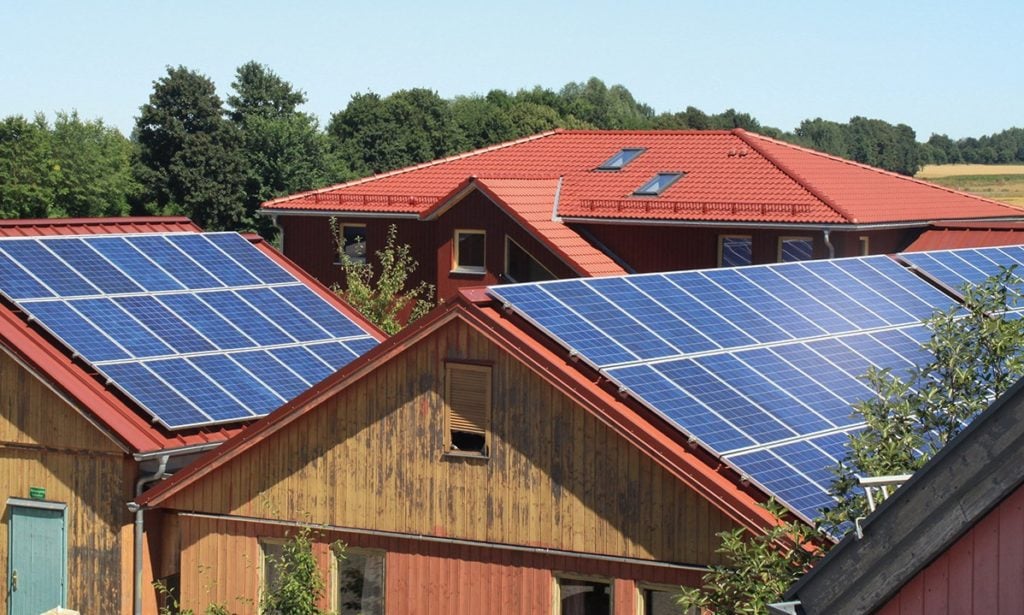
The number of residential solar and storage systems installed in Germany increased 52% in 2022 compared with the previous year, whilst three quarters of Germans would consider installing rooftop solar.
According to research and calculations from the German Solar Industry Association (BSW), as well as comments to PV Tech, the last four years has seen a fivefold increase in residential solar battery systems and a quadrupling of standalone residential PV installations. 2022 alone saw a 52% uptick in domestic solar-and-storage installations and an over 40% rise in domestic PV deployments.
Try Premium for just $1
- Full premium access for the first month at only $1
- Converts to an annual rate after 30 days unless cancelled
- Cancel anytime during the trial period
Premium Benefits
- Expert industry analysis and interviews
- Digital access to PV Tech Power journal
- Exclusive event discounts
Or get the full Premium subscription right away
Or continue reading this article for free
BSW found that three quarters of all homeowners would consider installing solar PV, and that one in five of those are planning to do so in the next 12 months.
The main driver in the increased adoption by homeowners has been the rise in energy prices, BSW said, and consumers’ desire for long-term stability and predictabilty. In fact, the association’s survey of 1,022 German homeowners found that 61% cited rising electricity bills as the leading reason for adopting rooftop solar. The second highest reason, with 52%, was the desire for independence from energy suppliers.
The growth in storage systems comes from similar motivation, but with the added rise in electric vehicle and heat pump adoption making home batteries more appealing. A study from SolarPower Europe this month found that the combination of rooftop PV and heat pumps could save Germans 62% on their energy bills compared with households relying solely on power from the grid and a gas boiler.
Some discussion has been had around the importance of decentralising grids in developed countries like Germany and the US in order to maximise energy security and solar deployment potential. Research from EY in November said that distributed generation and decentralisation are keys to the energy transition in countries with developed infrastructure. Storage adds yet another layer to the potential independence and security of energy consumers.
Similarly, the global PV bellwether state of California has been pushing for a shift from standalone PV to residential solar-plus-storage with its controversial NEM 3.0 legislation which is due to come into effect next month.
Regarding the financing trends for homeowners adopting PV in Germany, BSW found that around a quarter would rent their system, with a similar amount choosing to finance through loans. More than two thirds of residential systems are now built with storage, the findings said. The addition of storage to a residential system does often increase the cost quite significantly, though the potential savings through more managed self-usage are greater.
The commercial rooftop sector also saw growth in 2022, particularly with regards to storage systems. BSW said that 28% of business owners plan to install solar storage systems on their buildings in the next three years. However, the association was critical of slow political movement that has failed to meet the demand they have seen from the commercial sector, citing lack of grid availability and excessive bureaucracy as barriers to adoption for private businesses.
Germany has huge PV targets – 215GW deployed by 2030 – and the residential and commercial sectors can play a real part in reaching them. BSW said that, beyond the need to deploy solar at all scales, storage is increasingly going to be key to shore up the country’s grid and stabilise intermittent solar and wind assets. It called for an eightfold storage capacity expansion to 55GWh by 2030.
Looking to 2023, the association foresees the rooftop boom continuing. “The order books are well filled”, said general manager Carsten Körnig, and double-digit growth in solar and storage is expected once again in 2023.






